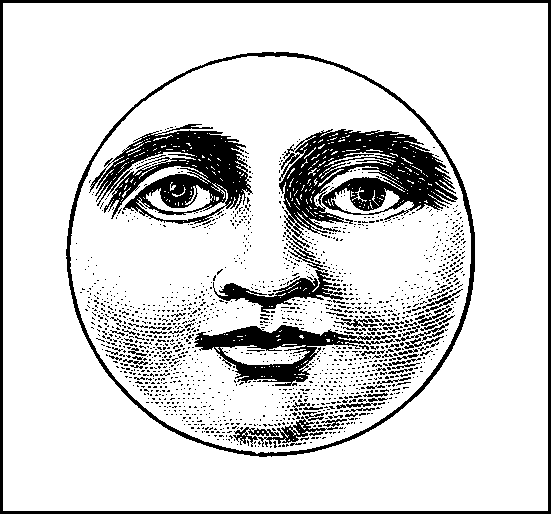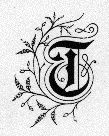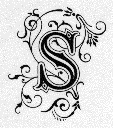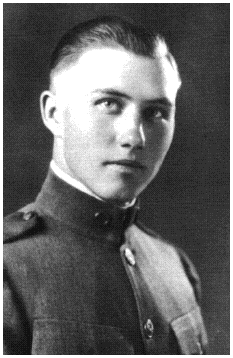The Review of Arts, Literature, Philosophy and the Humanities Summer, 1999 |
What you hold in your hand is The Folio, the print version of RALPH. It comes out each two or three months, and contains what we believe to be some of our best on-line reviews. It is sent to our regular subscribers, and --- on a one-time basis --- to any stray visitors who request a free copy. Reprints are welcome, but should include information that all true seekers can find us at The San Francisco Bay Guardian says Pelevin is "zany...funny, absurd, grotesque." We might buy into the latter adjective, but the laughs are few and far between. Still, we know he has talent hiding around here somewhere. The title story, "A Werewolf Problem in Central Russia" is wonderful --- one wants to sign up at once to become a werewolf ranging through the steppes of Russia: He could sense numerous smells impregnating the air, in a way which felt like a second gift of sight --- for instance, he could immediately smell his own backpack behind a tree that was quite a long way off, as well as the woman sitting in the car, the scent of a ground squirrel that had recently run along the edge of the clearing, the reliable, brave smell of the older wolves and the gentle aura of Lena [his lady friend]'s smell --- perhaps the freshest and purest note in the entire unimaginably wide gamut of senses... At the climax, finally, Sasha discards what is left of his human-ness to learn to "listen to the moon" and howl: The melody seemed to be coming straight from the moon...It was beautiful, but there were annoying gaps in it, empty patches. Suddenly he realized that he could fill them in with his own voice, and he began howling, quietly at first, then louder, raising his muzzle to the sky and forgetting everything else --- and just then the melody blended with his howling and become perfect. I vote that we take up a collection to send Pelevin off to the Urals for a couple of years to live with the moose and wolves and elk so he can stick to animal fiction --- rather than his overwrought, confused, people fiction.
Well, he did and they printed it in large type for those of us who don't especially like reading big words, unless they are 18 point. Then they printed it on the worst paper they could come up with, probably recycled stock from the Federal Register. Finally, they plastered a slick white cover on it, and called it You Name It in 90 Minutes. (They've done Descartes, Kierkegaard, Hegel, Aristotle, Plato, and ten or twelve more of The Greats; they also have about a dozen more in the oven.) Great marketing strategy. You and I don't want to bother our brains too much slogging through the real thing, like Stadoer paa Livets or Die Phänomenologie des Geistes or Principia philosophia when we can pick up 90 Minutes and then go down and tell our friends at the It'll Do Tavern, "You know, that reminds me of something that Hume said." Pause. Disbelief. We had been good on conversations about O. J., the Spice Girls, and The Lakers and the Knicks, but Hume! "He said, and I quote, Errors in religion are dangerous; those in philosophy only ridiculous." And everyone sits back, and blows out a little smoke, and nibbles on their beers a while, and thinks, "Why this guy certainly knows his philosophy, don't he?" The astonishing works of Confucius, and his equally astonishing effect on the entire set of an entire culture for 2,500 years is rendered to a few dozen pages, with such insights as Confucius was an earnest young man who believed in sharing his vast learning with the world: not a great technique for job interviews, Or, this on the I Ching (which is thought by millions to be a fairly profound system of dealing with the world): Even philosophers must have their hobbies, and throwing little sticks in the air to find out who's going to win the 21:30 race at Shanghai seems harmless enough to me. Then this on Buddhism and its 2500 year history of pacifism, its astounding insight into the human heart (and suffering), and its gentle view of humanity: The parallels with Christian thought are again all too evident, with the difference that in such times of difficulty Buddhists prefer to set fire to themselves rather than each other. 9,000 words in 90 minutes means a reading speed of 100 words a minute. Seems rather excessive for the hoped-for audience, doesn't it?
Each successive subclass, such as M1, is slightly less massive and slightly less luminous than the preceding. M2 stars, at 0.4 solar masses, have luminosities of 0.02 Suns, and so on, down through M5 stars (0.2 solar masses, 0.01 Suns luminosity) to about M8 (0.00001 Suns luminosity; 0.06 solar masses), the faintest and coolest (under 2500 K) stars known. As we used to say in high school when some smart-ass came up with a bag-full of philosophical or scientific gibberish, DUH. Lewis' agent, or his mother, or someone must have complained about the general unintelligibility of Worlds Without End because, just when the writing is about to drive you crazy, the author sticks in a duh to the 10th power:
By 1962, experts in celestial mechanics had pointed out that the late 1970s would present a rare planetary alignment, a sterling opportunity to send a spacecraft from Earth to Jupiter, Saturn, Uranus, and Neptune on a single arc. The Voyager spacecraft were built and launched to take advantage of this alignment. This mission, visiting five of the nine planets, soon became known as the Grand Tour. (The last previous Grand Tour opportunity was missed because space was not a high priority of President John Quincy Adams.) Duh. Every few pages Lewis might stuff in an interesting fact, unknown previously to this, your most astronomically dumb reviewer. For example, he tells us that the Sun is rare in that four out of five stars of its type are binaries, or worse, and that we should consider ourselves lucky, because planet rotation about a binary star is about as predictable as the sleeping habits of your friendly next-door speed freak. Despite these occasional bits of interest, it's mostly rough sailing up there in spaceville. Ostensibly, the theme here is whether there is life in other galaxies --- but with all the dummies we've dug up to run this one, we can't figure out why they'd need any more people-types in the universe. Worlds Without End also contains some pictures they tell us are of interesting star forms, but damned if we can make head-nor-tail of them. Most are similar to those photographs of Flying Saucers from the 50s which looked less like a space machine from the heavens and more like a blurred hamburger (with lettuce and mayo).
--- P. J. Weise
So she sends off a prospectus to her agent, and sure enough, a couple of publishers figure they don't have much in the hopper about wind this season, and one, Houghton Mifflin, nibbles, with a bit of an advance, and DeBlieu spends the next year looking up important facts about Wind in Strong's Exhaustive Concordance of the Bible and in Holy Wind in Navajo Philosophy and she puts these in the brain Mix Master with a few personal observations from her home in Cape Hatteras (the wind capital of the world) and Puff! --- she has a book. One reviewer, improvidently, compares DeBlieu to Rachel Carson, ignoring the fact that that latter wrote not under contract, but with passion and fearsome involvement in the cause of ecological havoc. DeBlieu, on the other hand, came up with a comfortable advance, a compliant publisher, and a made-to-order bit of scientific puffery which, if you excuse the expression, won't blow your mind --- even though it does have its moments.
You'd never guess all this from the book Polio. It's very mannerly, orderly, logical --- with none of the passion that some of us feel daily: passions of rage, frustration, anger, tear-down-the-world (and, too --- occasional triumph over the entropy that rules us.) Because it is so clinical, with few upsets --- Polio is a low-level downer. The hardships are painted with ice; the triumphs are knee-deep in Fake Bravery. Unless you are deep into the history of now-rare infectious diseases, and the chance occurrence of major tragedy in "normal" people's lives --- this ain't your book. It's an intermix of tales from the professionals who treated this now rare disease, and those who went through it. Ann McLaughlin, a contemporary novelist, appears here. She and her husband were infected at the same time, probably by their infant (the disease is transmitted by fæces). Her's is a measured, careful, distanced tale, which indicates that she may not have integrated the pain of it still, after all these years. Then there is the story of Michael W R Davis, the "1944 Kentucky Polio Epidemic." Polio took his left arm, but from the way he tells us, it was no problem at all. No depression, no strain, not to worry. He calls it "My stubborn refusal to 'give into polio,'" a stance that has hung on "for many decades." The contrary thesis is that those of us who somehow "gave into it" (e.g., recognized the scalding of our souls by this singular physical upheaval) are somehow less than perfect. His favorite aphorism is "There's always someone better off and someone worse off" --- a facile statement that doesn't even begin to address the garish truth of it. Oddly, the best writings in Polio, come from the professionals --- doctors who were interns and residents during the great epidemics of the 1950s. "Polio and the Making of a Doctor" by Thomas M Daniel is a tender portrait of doctors, nurses, and orderlies caught up in a terrible siege, when children were dying around them in obvious and heart-breaking agony. (This, of course, is the great paradox that mocks all the careful tenets of Christianity, and haunted Camus in The Plague: how to explain a god that will
put an innocent child through such brutal agony.) One feels the wonder and strength of professionals faced with a captious, unnerving disease --- striving with all their power to try to make it so that the pain-wracked, fevered, often suffocating patients could survive. These are doctors and nurses that worked all hours without surcease, without thinking of their pocketbooks (many of the children were very poor), certainly not thinking of weekends off in Vail. They come off as heroic as those innocents they were trying to help, even though, in truth, there was damn little they could do. If you want to get an honest portrait of this now almost forgotten disease, you might do well to forget Polio, and, instead, read Hugh Gallagher's new and fearsomely powerful personal saga, Black Bird Fly Away.
--- L. W. Milam
The horror is not so much the after as the before. Pilots, co-pilots, flight engineers not only talk their technical jargon, but also give out jokes, rather intimate musings on their personal lives, flirt-talk with stewardesses, and long descriptions --- in one case --- of the gooney birds on Midway Island: "They were hilarious...You'd get ready to take off. They'd send a pickup truck out and they'd go move the birds off the runway so you could take off..." These innocents do not know that in a minute or two they will be porridge, but you and I have that knowledge --- and as with any tragedy --- the foreknowledge creates an almost unbearable tension. You pick up Black Box and two hours later you are putting it down and vowing never to fly again. Mixed in with the usual messages to the passengers --- "We're going to be flying at an altitude of 37,000 feet, the wind is from the north at ten miles an hour, the weather in Dallas is clear and 51 degrees, and we should be on time" --- are all the technical details: checklists and cross feeds and DME and Slats and Spoilers and Vee One and Vee Two (none of which, by-the-bye, is enough to save their asses.) Mixed with this is talk about girlfriends, and having to take a pee, and the onerous burden of FAA rules, and the type of fruit juice the stewardess is going to send in and then: [Sound of several thuds]"We've got a left engine out...flight idle...god damn...emergency." Then End of Tape. And, at the same moment, the end of three or thirty-three or, in one horrendous case, 505 lives. What are the very last words of pilots and copilots and engineers who obviously, in the last few seconds, without a doubt, know that they have reached the end of the line? Often it is what you would expect: "Pull it up, pull it UP!" or "Help me hold it!" or "We're goin' down!" or this from USAir Flight 426, Pittsburgh, September 8, 1994: Equally, there might be a simple "Aagh!" Or, again, "Damn it!" Or the wonderfully understated "Uh-oh." Or (Air France Flight 296Q, June 26, 1988) "Aw, Shit!" MacPhearson has edited these tapes, but from our experience, some of the editing is flawed. When PSA Flight 182 went down in San Diego in 1978, the local newspaper carried the final minute of the black box dialogue. Here in the book, it has been elided: it merely ends with [Sound of stall warning]. The San Diego Tribune, gave the final sentence to another PSA captain who had hitched a ride with them from Los Angeles. His last words were, quite simply, "Mama, I love you." It spoke volumes.
In the 75 pages we managed to get through there were loud and pesky references to Virginia Woolf, Einstein, Ho Chin Min, Baudelaire, Motherwell, Courbet, Mondrian, Christ, Martha Graham, Verlaine, Constable, Byron, Tagore, Sal Mineo, Montgomery Clift, Rilke, Jung, Freud, Joyce, Duchamp --- you name it. Every now and again, a tiny scintilla of wit would pop up, One might say, It was about time, rather as Derrida replied when asked, what does deconstruction do? "It depends." But more often than not, this is a long, long Porkies for neo-intellectuals, vide: In fact, I should say that, intellectually speaking, the culture is "now" [now being the date of publication of the book you are reading] living in about the year 2038. Curious, ain't it? And which year are YOU living in, cher lecteur? [How the tiresome little weasel does torment his reader!!] [Note: Brackets are courtesy of the author, not this reviewer: although the sentiments expressed are not too far distant from my own.] It makes one wonder how the editors of FC2 made it through this without going bonkers. One of them is, incidentally, dragged in on page 55: "Even your editor at FC2, Curt White, complains about it." So I am writing here (and you will see this in the manuscript of the book): Shut up. The very same Curt White turns out to be not at all Shut Up but rather the composer of a most doubtful blurb featured at the top of the front cover comparing Nature Studies to Tristram Shandy which got us to wondering which Tristram Shandy they had in mind --- certainly not the funny one we read in college. Maybe he had another Stearne in mind --- one, more likely, more to his taste (with a few less vowels) named Howard. A brief time in the arms of Nature Studies is not unlike being on a 42-day cruise from Bermuda to Borneo spending the meals trapped at the dinner table next to that big bore who can't quite figure out why all the rest of us seem so eager to abandon ship somewhere near the Sargasso Sea.
The "Introduction" says that the magazine depended on its readers for reviews, but We also created a stable of fake names so that people would think we had a vast staff awaiting our assignments: Ignacio Schwartz, Jeremy Colon, Wanda Felix, Carlos Amantea, T. F. Bierly, A. W. Allworthy...and my personal favorite, P. P. McFeelie. Confoundedly, this anthology includes poems ostensibly produced by these very same "fake" writers.
Furthermore, in one of the footnotes, the publisher states that The Fessenden Review featured on the cover of its penultimate issue names of such authors as He then says that the list also contained ...names that sounded literary but that were strictly whole-cloth: Isabel Luis Corazon, Anwak Fayoumi, P. J. Weise, Jorge Amado, Lolita Lark, Laura Huxley. Names to test people. Just to make sure they were paying attention. The puzzle here is that Laura Huxley is in no way "whole-cloth" (she is a respected writer and critic.) But even more peculiar, at least to this reviewer, is the fact that the very editor of A Cricket is the same (supposedly mythical) Lolita Lark. Unless, of course, there are many more Lolita Larks floating around out there in literary la-la land.
In all, A Cricket is a very peculiar collection of fancy, but --- despite all this tomfoolery --- the poetry some of the best to come out of America in the 80s and 90s. If there weren't so much dicking-around here, perhaps the volume would receive the credit it deserves.
Grant, who remained in the South, served as mayor of Charlotte, and lost two close races for the U. S. Senate to Jesse Helms, said at Clemson, "If you can't appeal to the morals of a South Carolinian, you can always appeal to his manners."
Or: After Jean had sat in her room typing a speech while the governor and a bachelor aide escorted the attractive daughters of Gov. Earl Warren of California to a rodeo, she teased him the next day about his date.
Or: In Columbia, the western wall of the granite State House still bears ten brass stars to mark where it was struck by small cannon balls fired from across the Congaree River by General William Tecumseh Sherman's artillery, which pounded the city where the initial Ordinance of Secession (written by an Edgefield lawyer) was signed after Abraham Lincoln's election in 1860. Or, our favorite of all: He may well have shared the views of Mississippi's James O. Eastland, who sat for ten years in front of John Kennedy. Can you imagine what Eastland and Kennedy said to each other during the decade they sat glaring at each other? Mind you, we've dug up but four examples (out of 345 pages) of a book chock-a-block full of these howlers. The puff page tells us that Marilyn has worked for the Philadelphia Daily News and the Washington Post, and that Jack has written five non-fiction books and won the Robert F. Kennedy Book Award. How? And why? Are we to suppose that Cox newspapers, responsible for this stool, forbid them access to copy editors --- or at least someone who could move words around on the page with sense and reason? Why the hell don't they admit the truth? Strom Thurmond, never very big in the brain department, succumbed to uncontrolled priapism fifteen years ago. His Senate staff, eager to hang onto his committee chairmanships, stuffed him and hung him in the corner, complete with electronic doo-dads to make him stand up, smile, and jerk around a bit. He --- or what's left of his brain --- wrote this biography: it's his farewell address. As with all self-serving flack pieces, Ol' Strom is heavy on facts stuffed in there willy-nilly, throw-aways in the Christmas stocking. It promises much in the scandal department but delivers little, even ends up making Thurmond sound like a 20th century Robert E. Lee, complete with hearing aid, orange hair-plugs, and an army of loving beauty queens. We hope that Bass and Thompson were rewarded heartily for lending their names this travesty, and to what's left of the good Senator. Since he is far beyond caring --- or even knowing --- none will be the loser. Except the poor reviewer who has to plow through a TV beef-&-gravy dinner of dangling participles, inchoate phrasings, misplaced gerundives, and what our beloved Strunk and White would call WW! (Wrong Words) Where are the authors of The Elements of Style now, when we need them so?
Dear RALPH: I have read your magazine and I am agog. I would like to subscribe so I can receive thrice or quadriennial mailings of The Folio and help your wry efforts to better what's left of American letters. I understand that you will also send me a free copy of A Cricket in the Telephone (At Sunset) being poems from the late-lamented Fessenden Review. Please sign me up for: [ ] $1,000 - Lifetime Subscription (yours or mine) NAME: _____________________________________
ADDRESS: _________________________________
CITY/STATE/ZIP: ____________________________
being hard-copy RALPH
is sent out to all subscribers.
This is what it looks like. 
https://www.krabarchive.com/ralphmag/
Folio Editor
poo@cts.com
Problem in
Central Russia
and Other Stories
Victor Pelevin
Andrew Bromfield, Translator
(New Directions,1999) This Pelevin is one of "the promising young writers of post-Soviet Russia," the newest darling of the East Coast literary flacks who utter a few martini-ridden "huzzahs" when a new writer bumbles on the scene. For the rest of us, Pelevin is a confusing mess --- writings not unlike the rec room after the kids have made popcorn and watched MTV with their dopey friends. There's a chinese folk tale, a computer epic called "The Prince of Gosplan," a strange view of children in "The Ontology of Childhood," and the story of Vera who works in a men's toilet in Moscow and reads Doestevsky and Nabokov. These might as well have been written in Cyrillic for the sense they make to us.
This Pelevin is one of "the promising young writers of post-Soviet Russia," the newest darling of the East Coast literary flacks who utter a few martini-ridden "huzzahs" when a new writer bumbles on the scene. For the rest of us, Pelevin is a confusing mess --- writings not unlike the rec room after the kids have made popcorn and watched MTV with their dopey friends. There's a chinese folk tale, a computer epic called "The Prince of Gosplan," a strange view of children in "The Ontology of Childhood," and the story of Vera who works in a men's toilet in Moscow and reads Doestevsky and Nabokov. These might as well have been written in Cyrillic for the sense they make to us.
90 Minutes
Paul Strathern
(Ivan R. Dee, 1999)
Without End
The Exploration of Planets
Known and Unknown
John S. Lewis
(Perseus, 1999) e're not quite sure who this one is aimed at. If it is PhDs in astronomy at Harvard or CalTech, they are welcome to it. If it is homefolk, like you and me, god help us --- because it is full of chapters that sound like summaries of the IRS 1999 corporate tax code:
e're not quite sure who this one is aimed at. If it is PhDs in astronomy at Harvard or CalTech, they are welcome to it. If it is homefolk, like you and me, god help us --- because it is full of chapters that sound like summaries of the IRS 1999 corporate tax code:
How the Flow of Air Has Shaped
Life, Myth, and The Land
Jan DeBlieu
(Houghton Mifflin, 1999)
Thomas M. Daniel and
Frederick C. Robbins, Editors
(University of Rochester, 1999)
All New Cockpit VoiceRecorder
Accounts of In-Flight Accidents
Malcolm MacPherson, Editor
(Quill/William Morrow, 1998) he author advises that you might not want to read this before you embark on an airplane trip. I would also suggest that you not read it before breakfast. There are twenty-eight recordings from the famous black boxes, which record (and save) everything said and heard in the cockpit --- in this case --- right up to and including the moment of impact.
he author advises that you might not want to read this before you embark on an airplane trip. I would also suggest that you not read it before breakfast. There are twenty-eight recordings from the famous black boxes, which record (and save) everything said and heard in the cockpit --- in this case --- right up to and including the moment of impact.
CAPTAIN: Four twenty-seven, emergency!
COPILOT: [Screams]
CAPTAIN: Pull...
COPILOT: Oh...
CAPTAIN: Pull...pull...
COPILOT: God...
CAPTAIN: [Screams]
COPILOT: No...
Studies
John Henry Ryskamp
(FC2, Distributed by
Northwestern University, 1999)
The Telephone
(At Sunset)
Lolita Lark, Editor
(Mho & Mho, 1999)
 his is ostensibly an anthology of the best poetry that appeared in the peculiar quarterly called The Fessenden Review during its five year existence. If one pays attention to the sequence of the poems, and the names of the poets themselves, and the so-called "Introduction" (and even the "Index of First Lines"), one gets the distinct feeling that one is being diddled with. Indeed, this may be the first time, in late 20th Century English literature, that a book billed as an anthology of poetry turns out to be a Nabokovian chess game, with a puzzle of names right out of Joyce, and mystery worthy of Raymond Chandler.
his is ostensibly an anthology of the best poetry that appeared in the peculiar quarterly called The Fessenden Review during its five year existence. If one pays attention to the sequence of the poems, and the names of the poets themselves, and the so-called "Introduction" (and even the "Index of First Lines"), one gets the distinct feeling that one is being diddled with. Indeed, this may be the first time, in late 20th Century English literature, that a book billed as an anthology of poetry turns out to be a Nabokovian chess game, with a puzzle of names right out of Joyce, and mystery worthy of Raymond Chandler.
Günter Grass, Nadine Gordimer, Nancy Mitford, Umberto Eco, Lawrence Durrell (even though neither reviews of works of these authors nor their writings appeared in the magazine.) Finally, in the "Index to First Lines," we find not only poems carried in the collection, but Nel mezzo del cammin di nostra vita (which is the opening line of Dante's Divine Comedy,) and Arma virumque cano, Troiae qui primus ab orbis which is, I believe, the beginning of the Aeneid.
Finally, in the "Index to First Lines," we find not only poems carried in the collection, but Nel mezzo del cammin di nostra vita (which is the opening line of Dante's Divine Comedy,) and Arma virumque cano, Troiae qui primus ab orbis which is, I believe, the beginning of the Aeneid.
An Unauthorized
Biography of
Strom Thurmond
Jack Bass and
Marilyn W. Thompson
(Longstreet, 1999) These things should be declared a public nuisance. Oh, not Strom Thurmond --- he's been a public nuisance for longer than anyone can believe. No, we're talking about these dump truck bios like Ol' Strom. Terrible type, terrible binding, ill-conceived, ill-designed, ill-put-together --- an altogether vile union, written in a style that would have flunked you out of Clemson Junior College's freshman writing program. Listen:
These things should be declared a public nuisance. Oh, not Strom Thurmond --- he's been a public nuisance for longer than anyone can believe. No, we're talking about these dump truck bios like Ol' Strom. Terrible type, terrible binding, ill-conceived, ill-designed, ill-put-together --- an altogether vile union, written in a style that would have flunked you out of Clemson Junior College's freshman writing program. Listen: 
Box 7272
San Diego CA 92167
[ ] $25 - - - Three Years;
[ ] $17.50 - Two Years;
[ ] $10 - - - One Year (In Jail, On Welfare, Out-Of-Sorts)